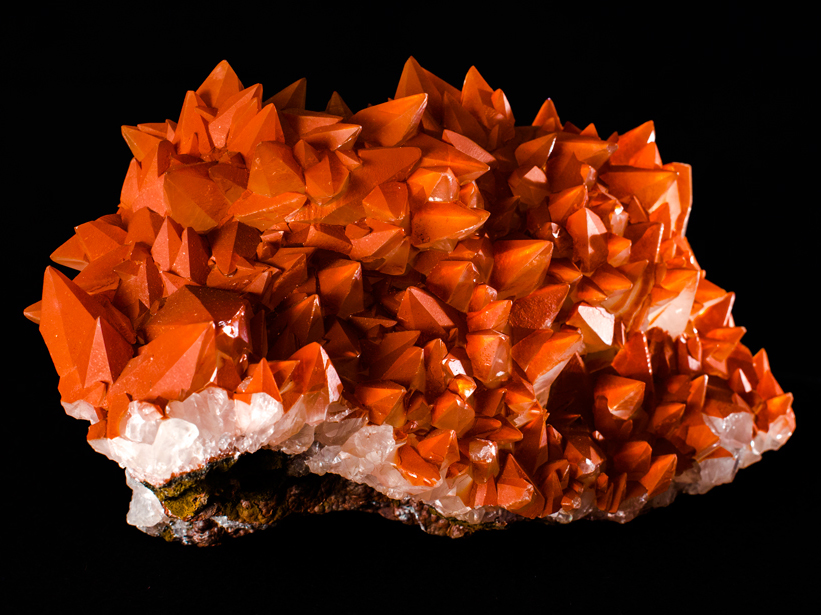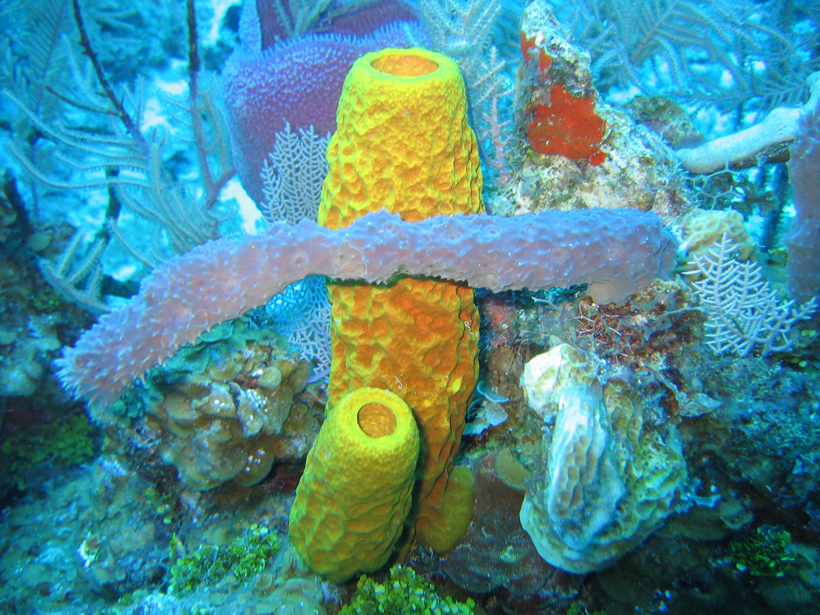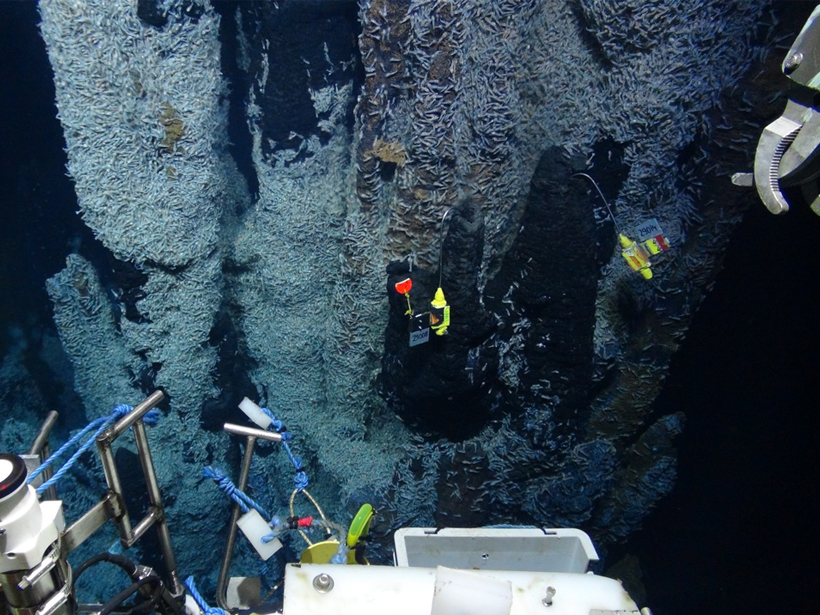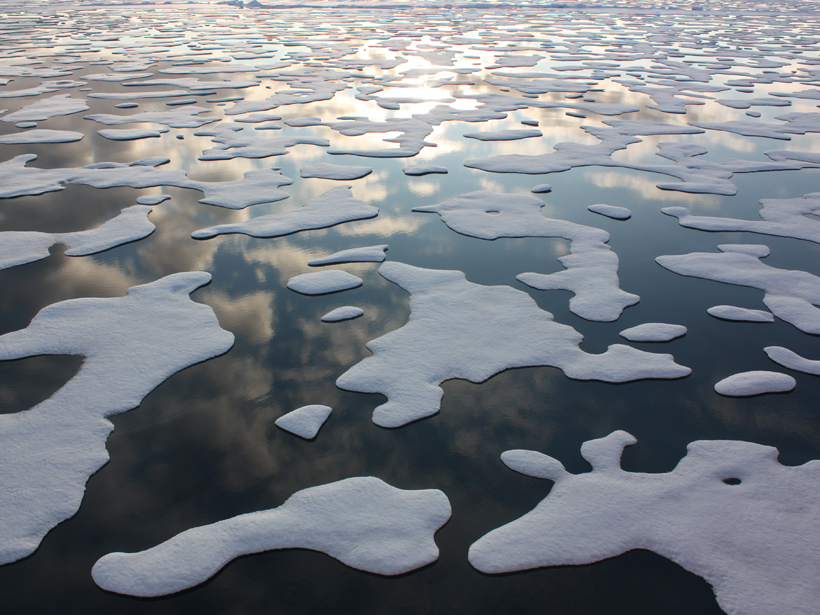A recently observed temperature reversal on Uranus may offer a clue to a long-standing mystery: Why are the upper atmospheres of gas giants so hot?
News
New NOVA TV Show Explores Coevolution of Rocks and Life
Mineralogist Robert Hazen and other scientists probe connections between living organisms and rocks in "Life's Rocky Start," which premieres tonight on PBS stations around the United States.
Claudia Joan Alexander (1959–2015)
Alexander is remembered for her leading role in the Galileo and Rosetta missions and her efforts to encourage women scientists from underprivileged and underrepresented groups.
Ancient Start of Animal Evolution Wasn't Delayed by Low Oxygen
New research finds that Earth had sufficient oxygen 1.4 billion years ago for animals to evolve. Therefore, low oxygen levels probably didn't hold back evolution, as scientists have long thought.
New Step Toward Finding Earth 2.0
Researchers unveil a way to tease out the wobble of a star caused by unseen planets despite the confounding effects of star spots, which are the sunspots of distant stars.
Special Delivery: Post Office to Issue Space-Themed Stamps
Letter writers will be able to adorn their envelopes this year with full-disk images of the planets, Pluto, and the full Moon, as well as Star Trek icons.
Novel Vents Built from Talc Found Far from Mid-Ocean Rift
Researchers discovered the first new variety of hydrothermal vents in a decade—a finding that may give clues to how oceanic crust cools.
Vanishing Sea Ice Could Trigger More Arctic Precipitation
A promising method for evaluating Arctic precipitation predicts retreating sea ice will increase snow and rainfall in the Arctic and counteract some of global climate change's effects regionally.
World Without Time
On New Year's Day 2019, a spacecraft known for its historic flyby of Pluto will take an unprecedented look into the distant past by flying right up to a frozen remnant of the original solar system.
Atmospheres Can Collapse on the Dark Sides of Planets
Planets that orbit close to their stars might lose their atmospheres along with any chance of life, but new models show a way in which these planets may retain their atmospheres and habitability.









